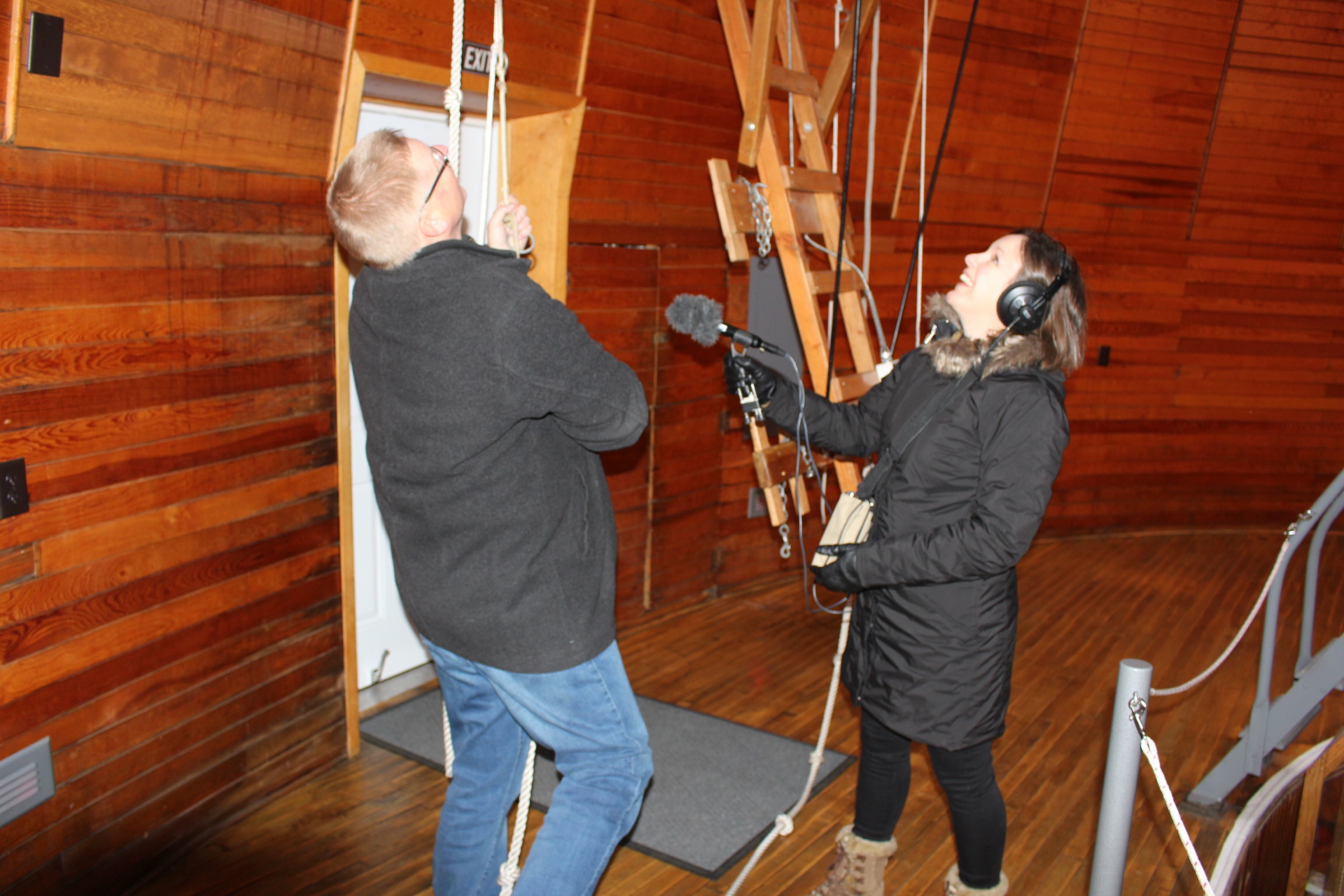
On location, Lowell Observatory, Flagstaff, Arizona. A rare moment of getting to hold the kit for a photo op as the roof of the observatory is opened.
After 6 months in solitary academic confinement, and with The Book triumphantly written, the beginning of 2017 has seen me return to life beyond my study with renewed enthusiasm and vigour. I’ve spent the past few months steeped in the Martian imaginings of our greatest writers and scientists for a BBC Radio 4 documentary on mankind’s romance with the red planet, for which I had the great if exhausting pleasure of a weekend trip to Mars’ Earth analogue, Arizona. We visited Percival Lowell’s Flagstaff observatory to learn more about how it all began, and then descended to Phoenix to talk about where we are now, with contemporary Mars scientists at Arizona State University. There may also have been a morning spent barsooming around the Arizona desert – as close to Mars as I’m ever going to get – imagining encounters with magnificent and fearsome six-limbed Tharks. And if that sounds a little frivolous, I can assure you that it was actually very illuminating: standing on red rock, looking across the barren desert to the dust clouds on the distant horizon, it suddenly made sense why that landscape inspired the original literary visionary of Mars – Edgar Rice Burroughs – whose experiences on those plains and encounters with their native inhabitants shaped his Martian imaginings. The programme will be broadcast as part of Radio 4’s Martian Festival at the beginning of March – more details to follow.
I also had the pleasure this week of a stimulating hour’s conversation with SF writers Roz Kaveney and Aliette de Bodard for an episode of Radio 4’s Beyond Belief on religion and science fiction, which will be broadcast on Monday 13th March. And, to knock a little realism into me, next month I’ll start recording my new series of Literary Pursuits by investigating the story behind the story of E. M. Forster’s posthumously published Maurice. Fortunately, neither interplanetary nor transatlantic travel is necessary to get started on that investigation, since a treasure trove of Forster’s papers sits on my doorstep in King’s College Cambridge’s modern archives.
